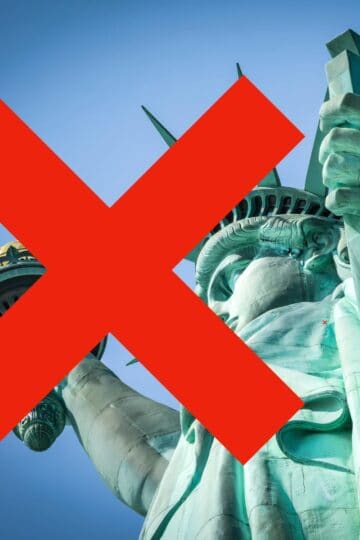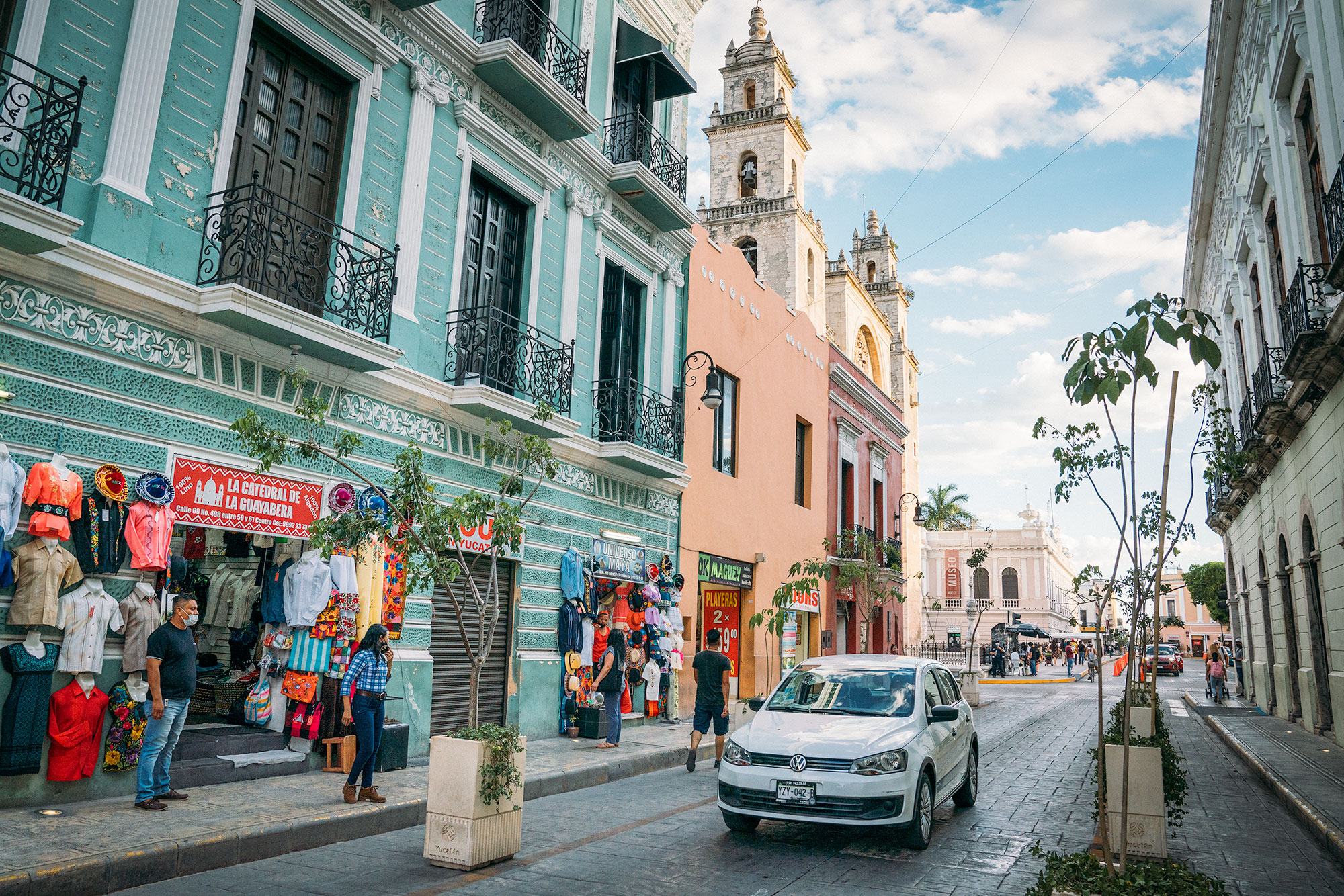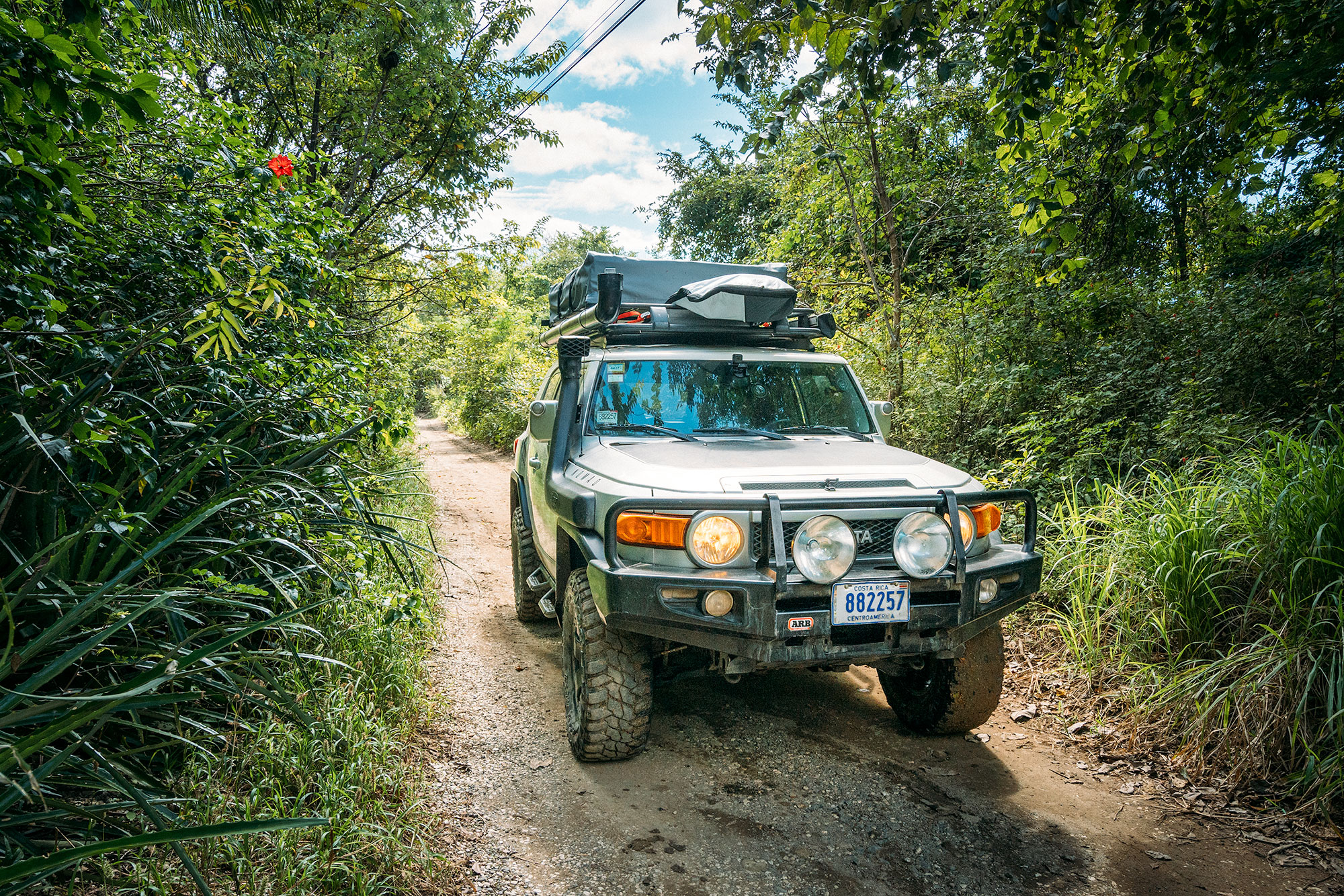It's now been over 10-years since I sold everything and left the United States to travel the world as a digital nomad. These are the best travel tips to help you save money and have a great trip!
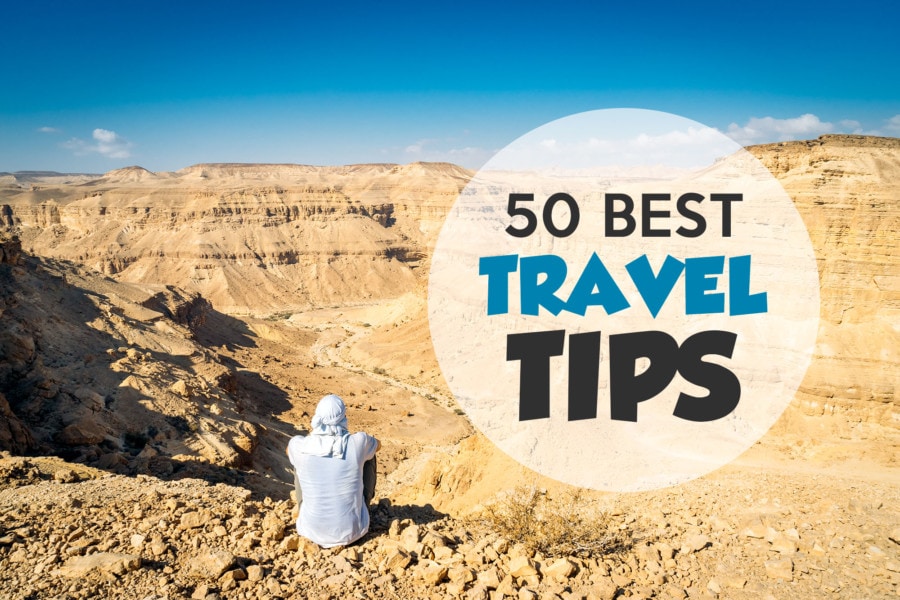
Curious about how to travel the world? I've been traveling around the world for many years as a digital nomad.
And I have tons of useful travel tips to share from my journey.
My traveling started when I quit my job and took a one-way flight to Guatemala, leaping nervously into the unknown and leaving much of my old life behind while embarking on an epic adventure around the world.
The experience has been a wild ride -- traveling to over 70 countries, meeting countless people, and I've learned a ton since I first left!
I eventually turned writing about my journey into this travel blog, and continue to travel on a regular basis as part of my dream job.
Every year I update this post with my top travel tips I've learned over the years. I hope you get something useful out of it!
Jump to:
Best Travel Tips: Ultimate Guide

Tips For Making Travel Easy & Fun
1: Patience Is Important
Patience is my top travel tip. Don't sweat the stuff you can't control. Life is much too short to be angry & annoyed all the time while traveling. Did you miss your bus? No worries, there will be another one.
ATM out of money? Great! Take an unplanned road trip over to the next town and explore. I know it can be hard sometimes, but just take a deep breath and remind yourself that it could be worse.
2: Wake Up Early To Avoid Crowds
Rise before sunrise to have the best attractions all to yourself while avoiding large tourist crowds. It's also a magical time for photos due to soft diffused light, and it's usually easier to interact with locals getting ready for their day.
Want those postcard Instagram travel shots? You need to get out there before everyone else shows up. Sketchy areas are less dangerous in the morning too. Honest hardworking people wake up early; scammers and criminals sleep in...
3: Observe Daily Life Around You
If you really want to get a feel for the pulse of a place, one of my favorite travel tips is to spend a few hours sitting in a park or on a busy street corner by yourself just watching day to day life happen in front of you.
Slow down your train of thought and pay close attention to the details around you. The smells, the colors, human interactions, and sounds. It's a kind of meditation -- and you'll see stuff you never noticed before. You'll really absorb the destination this way, and remember these moments long after you leave.
READ MORE: My Favorite Quotes About Travel

4: Laugh At Yourself Sometimes
You will definitely look like a fool many times when traveling to new places. Rather than get embarrassed, laugh at yourself. Don't be afraid to screw up, and don't take life so seriously. Relax!
One time a whole bus full of Guatemalans laughed with glee when I forced the bus driver to stop so I could urgently pee on the side of the road. Returning to the bus and laughing with them gave me new friends for the rest of the journey!
5: Slow Down To Enjoy Your Trip
Please don't try to cram 6 countries into 6 weeks of travel. All the good stuff happens when you really take the time to explore. You'll learn about activities that aren't in your guidebook and meet people who are eager to show you around.
I can honestly say that NONE of my best travel experiences happened within the first few days of arriving somewhere. Spend more time in fewer places for maximum enjoyment. I promise you'll have a much better time!
Along with that, I highly recommend renting a car when you travel to foreign countries. Sure, it can be a bit scary to drive somewhere new, but it really opens up your opportunities for adventure! Plus its a lot of fun.
6: Volunteer Occasionally
Make it a point to volunteer some of your time for worthwhile projects when traveling. Not only is it a very rewarding experience, but you'll often learn more about the country and its people while also making new friends.
There's a great site called Grassroots Volunteering where you can search for highly recommended volunteer opportunities around the world. Just be very careful with voluntourism and do your research, as there are many scams out there too.
READ MORE: 40 Travel Jobs To Work Overseas

7: Take Lots Of Epic Travel Photos
Pay attention to this travel tip. You may only see these places & meet these people once in your lifetime. Remember them forever with plenty of photos! Don't worry about looking like a "tourist". Great photos are the ultimate souvenirs.
They don't cost anything, they're easy to share, and they don't take up space in your luggage. Take plenty of photos of yourself with other people too, they'll be more important than your postcard shots later. Just remember that once you get your shot, it's important to get out from behind the lens and actually enjoy the view.
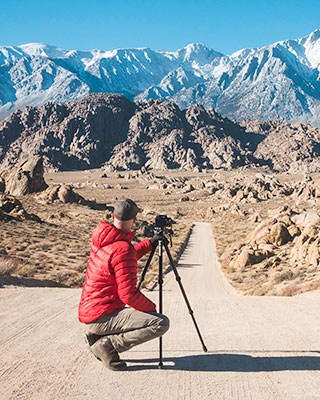
Take Better Travel Photos
Want to improve your photography? Check out my top travel photography tips to improve your photos!
8: Don't Get Discouraged
Nothing is impossible. If you are having trouble going somewhere or doing something, don't give up. You just haven't found the best solution or met the right person yet. Don't listen to those who say it can't be done.
Perseverance pays off. I can't tell you how many times I've been told what I want to do isn't possible, only to prove it wrong later when I don't listen and try anyway. What's the worst that can happen? Failing isn't the end of the world!
9: Break Out Of Your Comfort Zone
Challenge yourself to try things that normally give you anxiety. The more you do this, the more that anxiety will fade away. Not a hiker? Go on more hikes. Have trouble talking to strangers? Talk to everyone. Scared of weird food? Eat the weirdest thing you can find.
The reason this works so well while traveling is because everything is already so different, what's one more new/uncomfortable experience? No one knows who you are out here, you can totally reinvent yourself.

10: Keep An Open Mind
Don't judge the lifestyles or customs of others if different from your own. Listen to opinions you don't agree with. It's arrogant to assume your views are correct and other people are wrong. Practice empathy and put yourself in someone else's shoes.
Embrace different possibilities, opinions, religions, customs, and interests. Ask questions. You don't have to agree with everyone, but you may be surprised what you'll learn from the people you meet during your travels.
11: Get Lost On Purpose
If you want to see the parts of town where real people live & work, you need to go visit them. The best way to do this is on foot -- without knowing exactly where you're going. Write down the name of your hotel so you can catch a taxi back if needed, then just pick a direction and start walking.
Don't worry too much about stumbling into dangerous neighborhoods either, as locals will generally warn you before you get that far. And you never know what amazing things you'll find around the next bend...

Travel Planning Tips
12: Be Flexible & Don't Over Plan
I cringe when readers ask how many days they should spend traveling in a particular country or city. The truth is I have no idea what you'll enjoy or who you'll meet. I thought I'd rocket through Nicaragua in a week or two, but ended up living there for 4-months because I liked it so much.
My advice is to pick a starting point, 1 or 2 must-do activities, and an ending point (or not). Then just let the universe determine the rest. Be flexible and open to change your plans if you learn about something along the way!
13: Learn A Few Foreign Words
There's no need to be fluent in order to visit a foreign country. However, one tip I've learned is to master a few phrases in the local language can improve your travel experience. Hello, please, thank you, nice to meet you, excuse me, sorry, and "can I take your portrait" are some of my favorites.
Not being able to communicate while traveling can be frustrating, but remember that this is your problem, not theirs. Raising your voice doesn't magically help Mexican's understand English. Try hand signals, images on your phone, or Google Translate!
14: Take An Extra Credit & ATM Card
Having your bank card details stolen can suck, but especially if it happens when you're visiting a foreign country. If your card gets frozen, stolen, or the ATM machine eats it, you're screwed! Unless you happen to carry backup cards...
An important travel banking tip is to pack a 2nd bank account/debit card plus a backup credit card, which you keep separate from your wallet. This way, if your wallet gets stolen, or your ATM card gets declined, you are still able to have access to money during your travels.
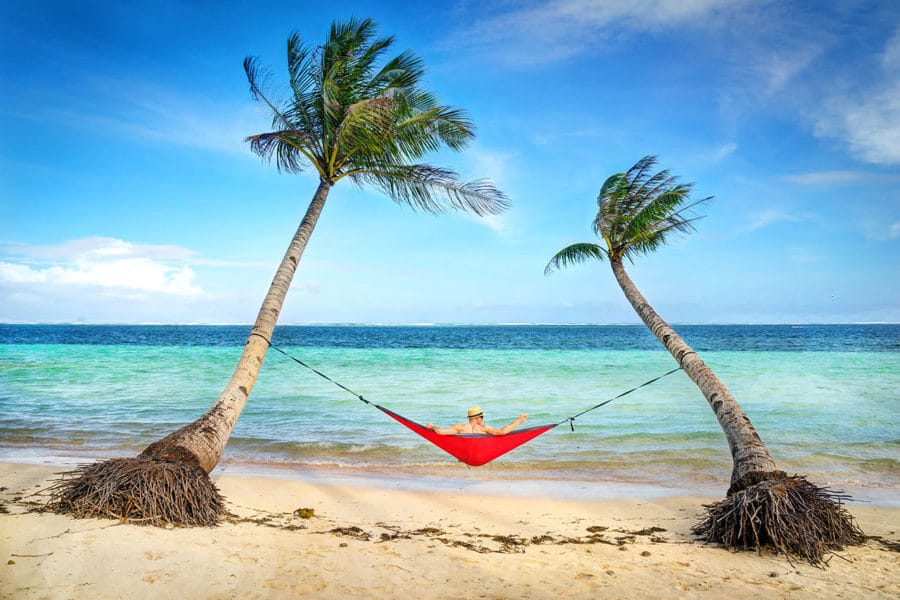
15: Write Down The Address Of Your Hotel
Sometimes, after a long flight playing games on your smartphone, your battery could end up dead. And if you didn't write down the address of where you're staying, how will you tell/show the taxi driver?
As ridiculous as it sounds, I've done this a few times and it's awkward. Falling asleep or forgetting to charge my phone. I'd also recommend writing down your hotel room number somewhere after you check in.
16: Read A Book About The Country
Before you travel to a new country, I recommend reading a good book about it, to learn more about history and culture before you arrive. This could be as simple as a Lonely Planet guidebook, or maybe a popular novel by a local author.
Your on-the-ground travel experience will feel much more fulfilling if you already know some details about the area you're visiting. Don't worry, you'll still discover plenty of new stuff, but you'll have a foundation to start on.
READ MORE: My Favorite Travel Books You Need To Read
17: Splurge A Bit While Traveling
I'm a huge fan of budget travel, as it allows you to travel longer and experience more of the fascinating world we live in rather than waste your hard-earned money on stuff you don't need. In fact you can travel many places for $50 a day with no problems.
That said, living on a shoestring budget gets old after a while. It's nice (and healthy) to go over your budget occasionally. Book a few days at a nice hotel, eat out at a fancy restaurant or spend a wild night on the town. Enjoy yourself!
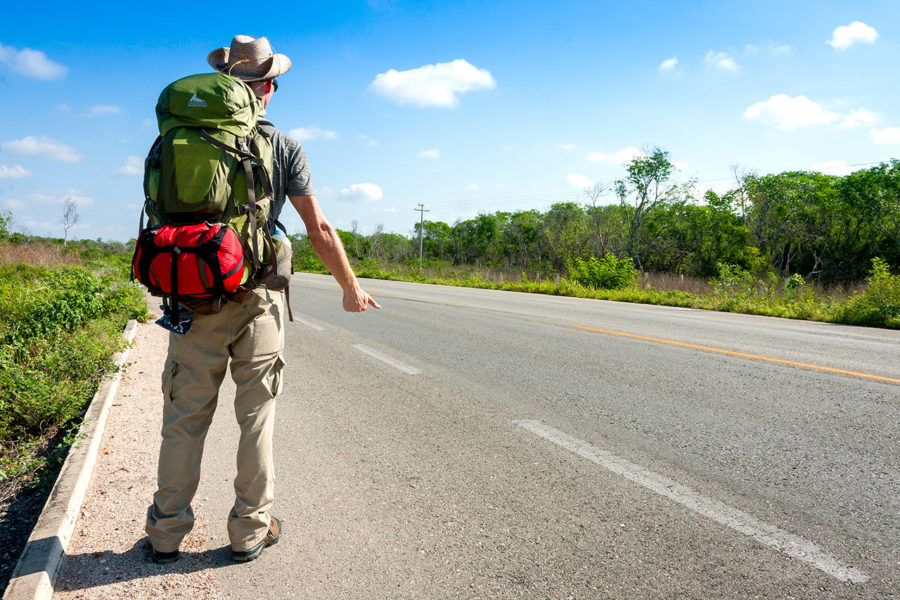
Useful Travel Packing Tips
18: Pack Ear Plugs & An Eye Mask
This travel tip should actually be #1 on the list. I love my earplugs! Muffle the sounds of crying babies, drunk Australians, barking dogs, honking horns, dormitory sex, natural gas salesmen, and more. A traveler's best friend. These are my favorite earplugs for comfort & effectiveness.
A comfortable eye mask is another wonderful investment to cure jet-lag. If you're looking for other gift ideas for travelers, make sure to check out my ultimate travel gift guide for those travelers in your life (or, just a treat for yourself!)
19: Take A Scarf Or Sarong With You
I happen to use a shemagh, but sarongs also work great. This simple piece of cotton cloth is one of my most useful travel accessories with many different practical applications.
It's great for sun protection, a makeshift towel, carrying stuff around, an eye mask, a wrap for conservative countries, and much more. I can't tell you how many times a scarf has come in handy for me on my travels around the world.
20: Bring Your Own Water Bottle
If you haven't noticed, humans are destroying the planet with plastic waste. Constantly buying bottled water when you travel is incredibly bad for the environment! But tap water isn't always safe everywhere either...
My advice to both save money and help save the environment is to pack a filtered water bottle on all my adventures. This way you can re-use the same bottle thousands of times, and never pay for expensive, wasteful bottled water again!
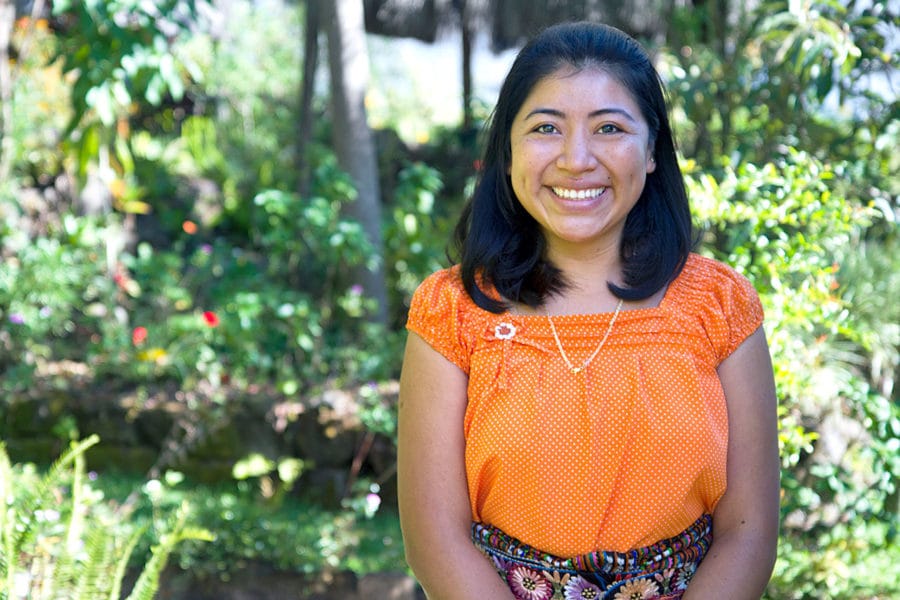
21: Pack Less Stuff In Your Backpack
You don't need ½ the gear you think you do to travel anywhere. We've all done it. It's a right of passage for travelers to slowly become better at packing less. My first backpack was 70-liters packed full, my current bag is only 40-liters.
As a full-time vagabond, everything I own fits in my travel backpack. If you're not sure about packing something, you don't need it. It's also possible to buy most things at your destination country if you discover you need them.
22: Carry Spare Passport Photos
Obtaining visas for certain countries can be a real pain, and some can require multiple passport sized photos. Have you ever tried to find a place that shoots passport photos in Tajikistan? It's not easy!
Before you leave your home country, get a bunch of passports sized photos (10?) printed up and bring them with you, just in case. It will save you a lot of time and hassle in the long-run.
23: Bring An Extra Camera Battery
There's nothing worse than being in the middle of a perfect photo opportunity, but powerless to capture it because of a dead camera battery! When I first started traveling, this happened to me more times than I'd like to admit.
These days I don't go anywhere without a spare battery for my camera, charged up and ready for action. That way you're always ready for epic travel photography situations like cotton-candy sunsets, wildlife encounters, or postcard-worthy street scenes.
24: Always Pack A Lock
I always pack a small combination lock as well as a thin steel cable when I travel. It comes in handy in many situations, for example if you're staying at a hostel with lockers, or if you need to lock your bag to something for some reason.
I've locked my bag to bus seats, to a tree while at a swimming hole, to a sink in a sketchy hotel room, etc. I've also used them to lock a rented scooter up, or a bicycle. It's not perfect, but its better than nothing.
25: Bring Good Travel Shoes
You're going to be walking a lot when you're traveling, especially if you want to save money. So invest in a good pair of travel shoes (I really like these ones) that are lightweight, multi-use, and very comfortable.
I like to bring a pair of good sneakers, as well as a pair of sandals. If I'm going to be doing a lot of hiking in the mountains, I'll also pack a pair of hiking boots.
26: Packing Cubes For The Win!
Trying to keep a suitcase or backpack organized while you travel is a big headache, unless you use
packing cubes. These little zippered bags allow you to keep your underwear separate from dress clothes, or dirty clothes from clean ones.
I've been using these packing cubes for years and absolutely love them! They take up very little space, but make finding your stuff so much easier. Another option is compression bags, which push all the air out leaving even more room for more stuff.
READ MORE: My Complete Travel Gear & Packing Guide
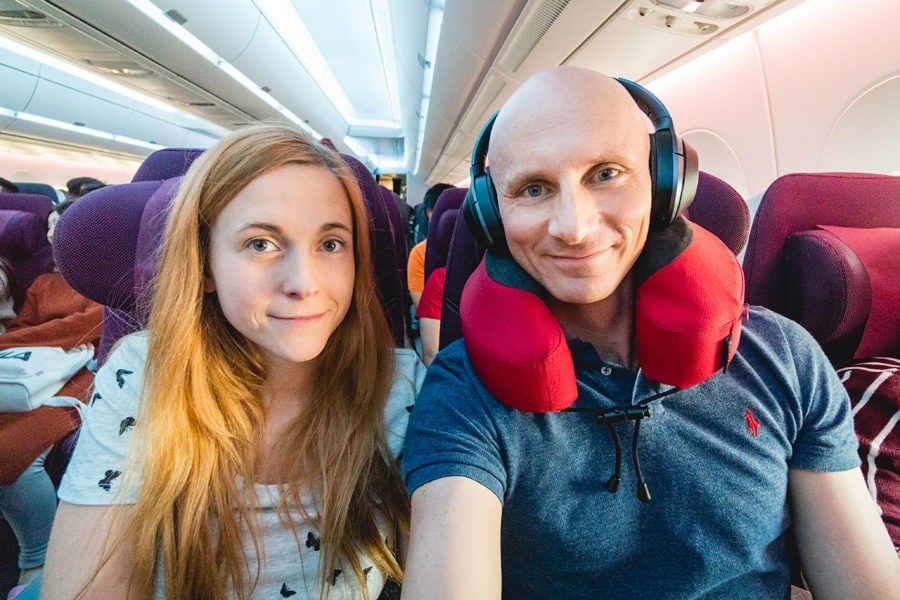
Money Saving Travel Tips
27: Book The Cheapest Flights
Flying can often be one of the most expensive parts of an international trip. But with practice, you can learn how to book super cheap flights and save tons of money. For example, by booking 2-3 months in advance.
Sign up for cheap ticket alerts, keep an eye on mistake fares, and take a look at alternative airports that might be near your final destination. Read my free guide to finding cheap flights and learn all the latest tricks!
28: Go On Free Walking Tours
One great money saving travel tip is to join free city walking tours when you first arrive. These tours allow you to orient yourself in an unfamiliar city, scope out some good photography locations to return to later, learn facts about the city, and maybe make some new friends too.
Just keep in mind that the tours are free because the guide is expecting a tip at the end, so don't be cheap and make sure to thank them for their time with $5-$10. It's a wonderful way to save some money while traveling!
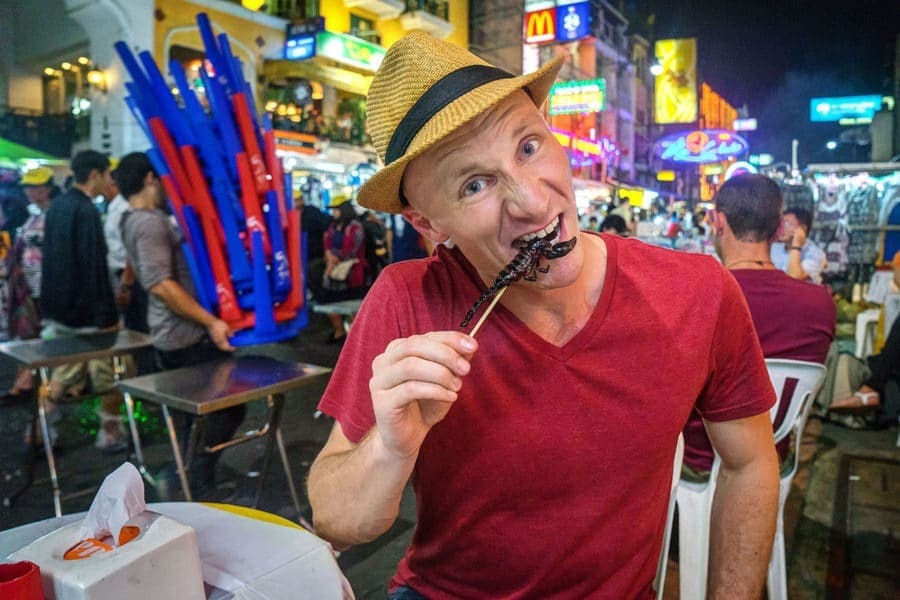
29: Eat Local Food Frequently
Taste a bit of everything when you travel, especially if you don't know what it is. Ask local people for recommendations. Eat street food from vendors with big lines out front. Eating street food is an awesome way to save money while you travel!
I've only been very sick twice in 9 years of constant travel. Don't be scared of the food. Hey, there's nothing wrong with popping into McDonald's if you're feeling homesick, but why fly across the world to eat the same stuff you can get at home? Live a little!
30: Avoid Expensive Hotels & Resorts
You don't need to stay at expensive hotels while traveling. In fact, you can save hundreds, or even thousands of dollars on your trip by staying in more budget-friendly accommodation, like hostels, local guesthouses, or Couchsurfing -- an online community of people who share their couches with strangers for free.
Sleeping in backpacker hostels can also be beneficial to your wallet, as renting a dormitory bed costs a fraction of what a hotel would. $30 a night versus $100 a night really adds up! Plus it's a wonderful way to meet fellow travelers.
31: Cook Your Own Meals
One of the benefits of staying in a rented apartment or hostel is these types of travel accommodations usually have a kitchen. Do you eat out every night when you're home? Do you think the locals do? Of course not.
One of the reasons travel is so expensive is because we often eat out all the time because it's convenient. You'll save a lot of money if you simply visit the supermarket and prepare some of your own meals while you're traveling. It's fun to shop at foreign supermarkets too!
32: Use Travel Credit Cards For Rewards
It took me a while to get into travel hacking, but now that I have, I use it all the time! Basically, by using certain travel rewards credit cards for your bills & expenses, then paying the off right away, you can collect thousands of points & miles that can be redeemed for free flights, hotels, and more.
I've saved thousands of dollars on free flights this way over the years. In fact, just last year my wife and I paid under $300 for two round-trip flights from New York to Argentina -- saving over $2000.
33: Eat Away From Tourist Attractions
Restaurants that are conveniently next to popular tourist attractions are ALWAYS overpriced. If you want to save money on food, try walking a few blocks away to eat at a normal restaurant, not one geared for tourists with inflated prices.
Also beware places where the menu is written in multiple languages for tourists -- these are also going to be overpriced.
Helpful Travel Safety Tips
34: Don't Be Afraid Of Other Countries
The corporate news media loves to report on tourists getting killed or kidnapped. Because it's sensational and gets clicks. However, the world is not nearly as dangerous as the media makes it out to be. Keep an eye out for sketchy situations but don't let that be the focus of your whole trip.
Use common sense and you'll be ok. Understand that "if it bleeds, it leads". Most people in foreign countries are friendly, trustworthy, generous, and willing to help you out. This goes for women too. I realize I'm not a woman, but I've met plenty of experienced female travelers who agree.
35: Always Get Travel Insurance
No one ever thinks they'll get sick, injured, or robbed while traveling. But it happens when you least expect it. During my travels, I've sliced up my head on a volcano, contracted Dengue fever, and lost my laptop to thieves.
With good travel insurance you don't have to worry about huge hospital bills or stolen gear when it eventually happens. For all kinds of trips ranging from a weekend up to a few months long, I always recommend picking up a travel insurance policy with SafetyWing.

Get Travel Insurance
Protect yourself from injury, illness, or theft while abroad. SafetyWing offers affordable travel insurance.
36: Wear That Sunscreen!
I can't tell you how many times I was outside blissfully enjoying the sun during my travels, and then got badly sunburned, ruining the rest of my week. Wear sunscreen every day, even if its cloudy out, or you'll regret it later because you can't sleep -- or worse, end up with skin cancer or other problems.
Especially when you're traveling to places near the equator, or at high altitudes, wearing sunscreen is key. And remember to pack your own, because it can be very difficult to find in some countries where it's not widely used. This is my favorite sunscreen after trying everything out there -- one application lasts a very long time!
READ MORE: 25 Important Travel Safety Tips

37: Stash Extra Cash For Emergencies
To cover yourself in an emergency, make sure to stash some extra cash in a few different places. I recommend at least $200-$400 dollars worth. If you lose your wallet, your card stops working, or the ATMs run out of money, you'll be glad you did.
In some countries, cash is more important than in others. Make sure to do your research beforehand, and bring plenty of it if required. Preferably crisp, new, $20 USD bills.
Some of my favorite hiding spots for cash when I travel are inside my toiletry bag, around the frame of a backpack, or if you're extra paranoid -- sewn behind a patch on your bag!
38: Back Up Your Files & Photos!
When my laptop computer was stolen in Panama, having most of my important documents and photos backed up saved my butt. I've met many travelers who've had a hard drive fail on them, losing thousands of priceless travel photos.
In addition to photos, keep digital and physical copies of your passport, driver's license, birth certificate, health insurance card, serial numbers, and important phone numbers ready for an emergency. Backup your files & photos on an external hard drive as well as online with software like Backblaze.
39: Treat Your Body Well
Travel can throw your body out of whack. When you're moving from place to place it's difficult to maintain a workout routine, and many of us slack off. Or we don't sleep enough. Or we eat too many cupcakes. I'm guilty of not flossing my teeth.
Remember to be nice to your body. Get enough sleep, stay hydrated, eat healthily, use sunscreen, and exercise often (check out this body weight routine, no gym required!). And, yes, flossing too I guess.
40: Get Your Vaccinations
Getting sick in a foreign country is never fun, and some countries have a higher risk of certain diseases than your own. Do your research and learn which travel vaccinations you might need for the areas you're planning to visit, and make sure to get your shots well before you leave on your trip.
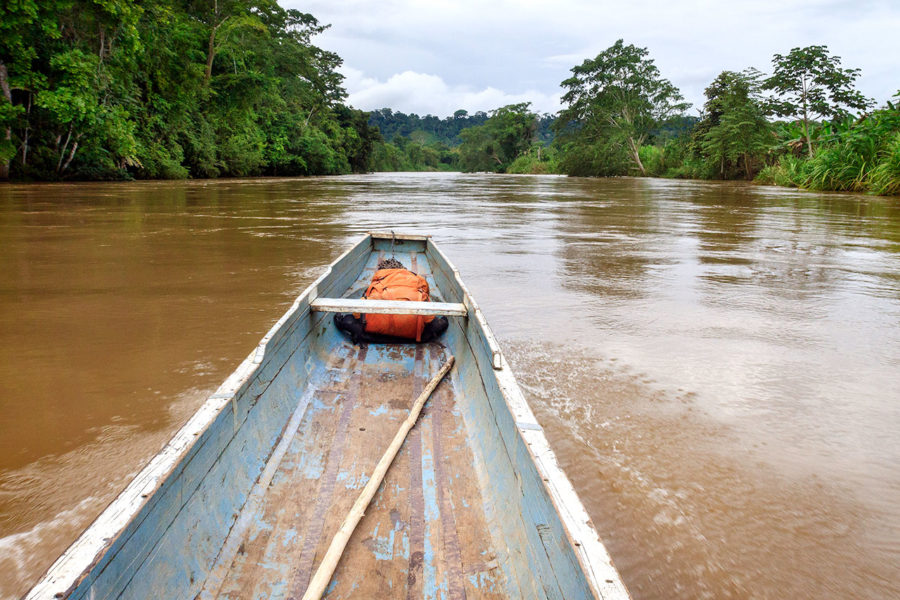
Solo Travel Tips
41: Travel By Yourself Occasionally
While traveling with friends is a lot of fun, solo travel is when you'll REALLY learn about yourself and what you're made of. Traveling solo forces you to figure things out on your own, meet new people, and tackle unfamiliar situations.
You're also free to pursue the activities and experiences that you truly want to have while traveling, with no objections or limitations from others holding you back. It's a wonderful way to learn new life skills and increase your confidence.
42: Get Off The Beaten Path
I know it's cliché, but you should still attempt it. Seek out interesting and unusual places that don't see much tourism while travelling (or traveling). Many memorable travel experiences have happened to me in areas that are not easy to visit.
By all means, travel to popular sites, but don't rule out other locations just because they're not on the tourist trail. Although please realize that just because an area is remote or dangerous doesn't necessarily mean you'll have a life-changing experience.
43: Stay In Touch With Loved Ones
Remember to call your family & friends from time to time. Maybe surprise them and go old-school by sending a postcard (it's in the mail, Mom!). Travel isn't lonely, far from it. You constantly meet other people.
But traveling solo means many of those new relationships are fleeting. Someone is always coming or going. So maintaining a strong connection with the people who know you best back home is important for your mental health.
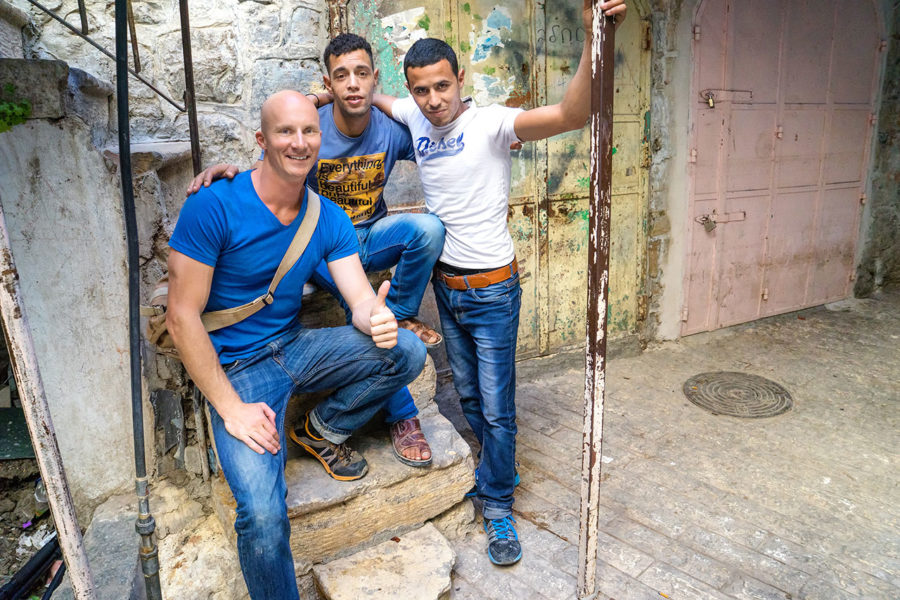
44: Make Friends With Locals
Make it a point to avoid other travelers from time to time and start conversations with local people. One of my best travel tips is to make eye contact and smile more. Maybe stop to ask for directions. This is a fast way to make new friends.
Also, check out websites like MeetUp.com or CouchSurfing.org and similar good travel websites to see what kinds of activities are going on nearby, and join one. Take the time to hang out with locals who actually live in the country you're visiting. People enrich your travels more than sights do.
45: Listen To Podcasts For Long Trips
Podcasts are awesome. It's like your own personal radio station full of shows and music you always want to listen to. I never thought I'd actually look forward to a 10-hour bus ride. But with podcasts, it's possible (well, as long as the seats are comfortable)!
Time will fly by as you listen to incredible storytelling, fun music, or fascinating interviews with experts. Here are some of my favorite podcasts that I play regularly:
46: Say Yes More Often
Be impulsive and say yes when someone randomly invites you to meet their family, try a new activity, or explore a place you didn't know existed. You never know what you're missing unless you say yes!
It's these unexpected and unplanned situations that add spice to your travels and always turn into the best stories later. Accept the kindness of strangers when you travel -- you'll have plenty of opportunities to do so.
47: Visit The Local Tourism Office
Most large towns and cities have a local tourism office, and it's a great place to visit if you'd like to get some ideas for things to do in the area. Tell them what you're looking for, and they'll be happy to help.
Whether it's free activities nearby, family-friendly spots, or even local festivals and events that may be going on at the time, the tourism office is there to point you in the right direction.
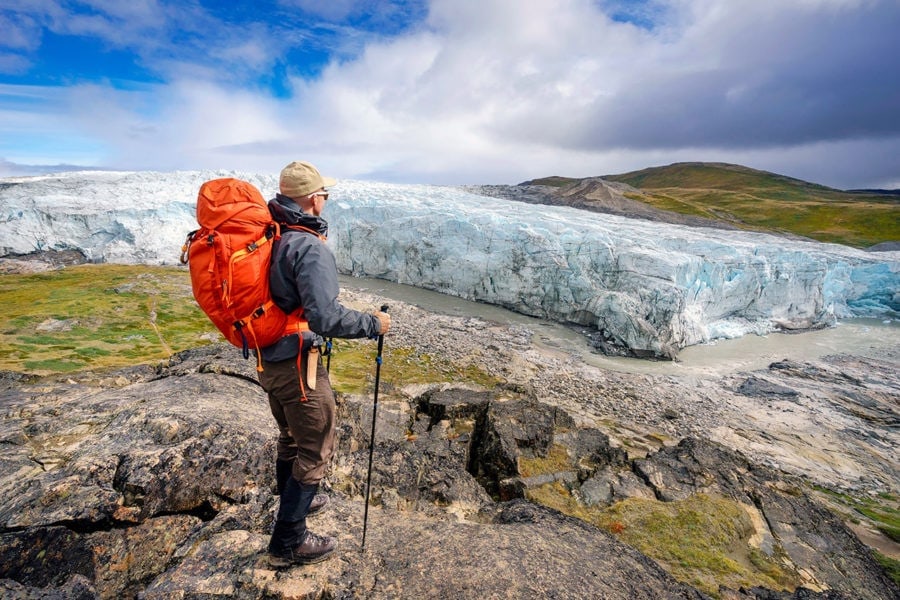
Travel Tips For Flying
48: Get A Comfortable Travel Pillow
I have a hard time sleeping on planes, and I know I'm not alone. Along with packing a pair of earplugs like I mentioned earlier, I also recommend splurging on a comfortable travel pillow like this one to help me fall asleep easier on long international flights.
49: Follow The Business Travelers
Hate long security lines at the airport? Try to get in line behind business travelers, because they travel often and will know what they're doing. Stay away from families, because they take forever to unpack and get through security.
Trust me on this one, I travel with a baby now, and everything takes a bit longer! I wish it didn't, but it does. I apologize in advance if you get stuck behind us in line!
50: Stay Hydrated
The recirculated air in planes is super dry, and sitting there for hours can dry out your body quickly. Most people don't drink enough water anyway, and flying makes it even worse. This contributes to jet lag too.
Before getting on an airplane I recommend you pre-hydrate by drinking a liter of water mixed with some re-hydration salts. Just don't use you water filter with these, or it will get clogged!
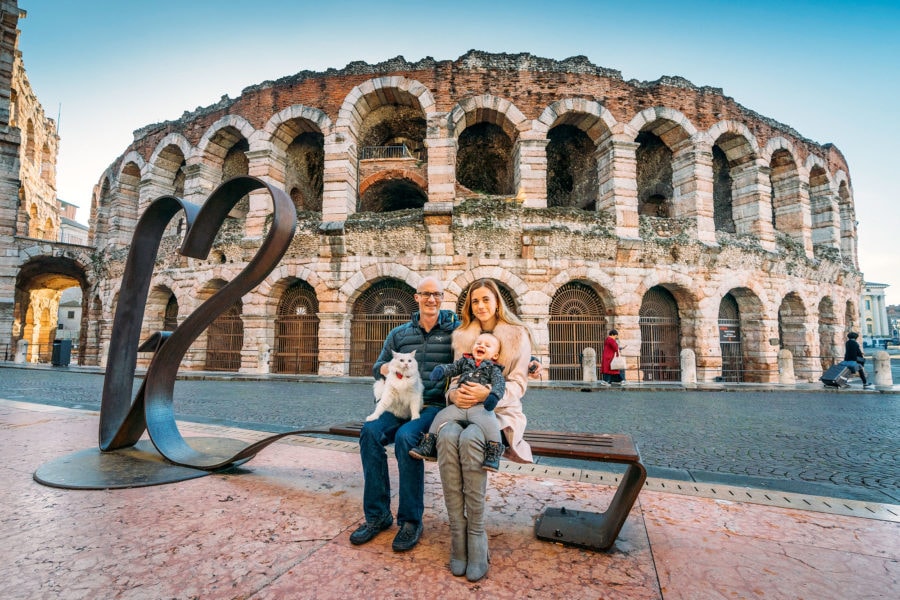
Bonus Travel Tip: Travel More!
If there's one thing I've noticed over the past 10 years, it's that many people back home love to tell me how lucky I am while making excuses why they can't travel.
It's too expensive. They can't get time off work. Who will feed their pets?
When I suggest solutions to these "problems", they still don't take action. Why? Because they're often hiding behind the true reason: they're scared.
Unfortunately most people who wait to travel the world never do.
You don't need to sell all your worldly possessions and become a homeless vagabond like I did. Just get out there more than you do now. Start with a weekend in a different state. Then maybe try a week in the country next door.
The new car, remodeling project, and the latest iPhone can wait. If you truly want to travel more, you can make it happen. Career breaks are possible. You have friends who would love to watch your pets.
It's a big, beautiful, exciting, and fascinating world out there.
Explore some of it now, rather than later. ★
BOOKING A TRIP SOON?
Here are some travel resources to help you save money & have a great time!
- Ultimate Travel Packing List
- How To Find Cheap Flights
- Tips For Renting A Car Abroad
- How To Save Money Booking Hotels
- Why To Always Get Travel Insurance
- My Best Travel Tips For A Great Trip



